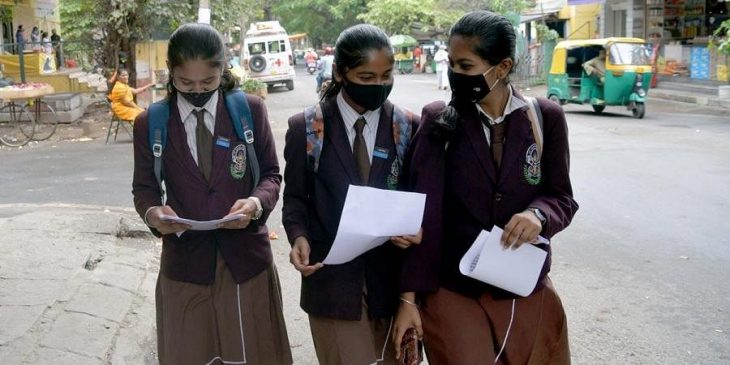New Delhi:
Schools need to be reopened in a phased manner (beginning with primary schools followed by secondary schools) and allowed to remain open and safe with multi-layered mitigation measures, according to experts at the top medical body, the Indian Council of Medical Research (ICMR).
In an opinion piece published in The Indian Journal of Medical Research, the experts cited a UNESCO report which stated that shutting schools in India for more than 500 days have affected over 320 million children.
The piece titled ”Reopening of schools during COVID-19 pandemic: A persistent dilemma” said evidence indicates that going back to the education system to what it was in pre-Covid times, as early as possible, appears prudent in the Indian context.
“However, it would be necessary to examine the State-specific as well as district-specific data on earlier waves of infection and the status of adult vaccination coverage to project any plausible third wave and its potential intensity to inform such decisions related to schools reopening,” said the report authored by Tanu Anand, Balram Bhargava and Samiran Panda.
The experts spotlighted the already widened learning inequities in India and said there is a lack of scientific agreement on what is the appropriate time to go back to in-person learning among schools.
“There is ample evidence to suggest that children aged 1-17 yr have similar susceptibility to mild form of SARS-CoV-2 infection as in adults. However, the risk of severe disease and mortality in children when compared to adults is much less,” said the report.
Temporary shutting of a class or school may occur depending upon the virus spread in the area or if COVID-19 indicators worsen, said experts.
“It is well known that COVID-19 transmission is an ‘over-dispersed’ phenomenon. Therefore, testing strategies in school settings could serve as key interventions to check the potential spread of the virus. It must also be acknowledged that the testing strategies for SARS-CoV-2 infection in schools should act as adjunct and not substitute to other organizational and behavioural interventions,” it cautioned.
The experts advocated frequent testing of school staff and students for early detection of cases, which is essential to prevent outbreaks. However, they added that routine temperature or symptom checking in schools should be avoided due to limited evidence on their utility19.
School teachers, staff and those involved in the transportation of children should be vaccinated on an urgent basis and continue to use a mask even after receiving the jabs, the experts underlined.
The available evidence suggests that children aged 12 year and above are at a high risk of contracting infection and therefore must be prioritized for vaccination compared to the younger children, said experts.
Speaking at the United Nations, Prime Minister Narendra Modi said India has developed the world’s first DNA vaccine that can be given to everyone above 12 years of age. Zydus Cadila’s three-dose COVID-19 DNA vaccine that was cleared by the drug regulator DCGA last month.
Consistent use of masks, sanitization and hand washing are the key pillars of Covid-appropriate behaviour and must be practised by students and school staff alike.
The experts said while masks are not recommended for children under five years, six to 11-year old children may wear a mask depending on their ability to use them safely and appropriately. Those aged 12 years and above should wear masks under the same conditions as adults, they said.
Schools should ensure that the indoors are well ventilated and air conditioners should be avoided. Exhaust fans should be installed in classrooms to curtail the potential spread of infection. Also, children should be advised against sharing meals, spending long hours in canteens or dining halls.
Referring to the open-air classes propagated by Nobel Laureate Rabindranath Tagore at Santiniketan, the experts said, “COVID-19 has forced us to explore and discover innovative learning methods, particularly in nature’s lap.”
“Anecdotal evidence from India also points towards a sporadic rise in Covid cases in states that initiated the reopening of schools after the first wave. All these points towards over-dispersed phenomenon in COVID-19 transmission in various settings, they said.
It should also be noted that global evidence suggests schools as “non-drivers” of transmission of SARS-CoV-2 infection in the community, the experts underlined.







Leave a Reply